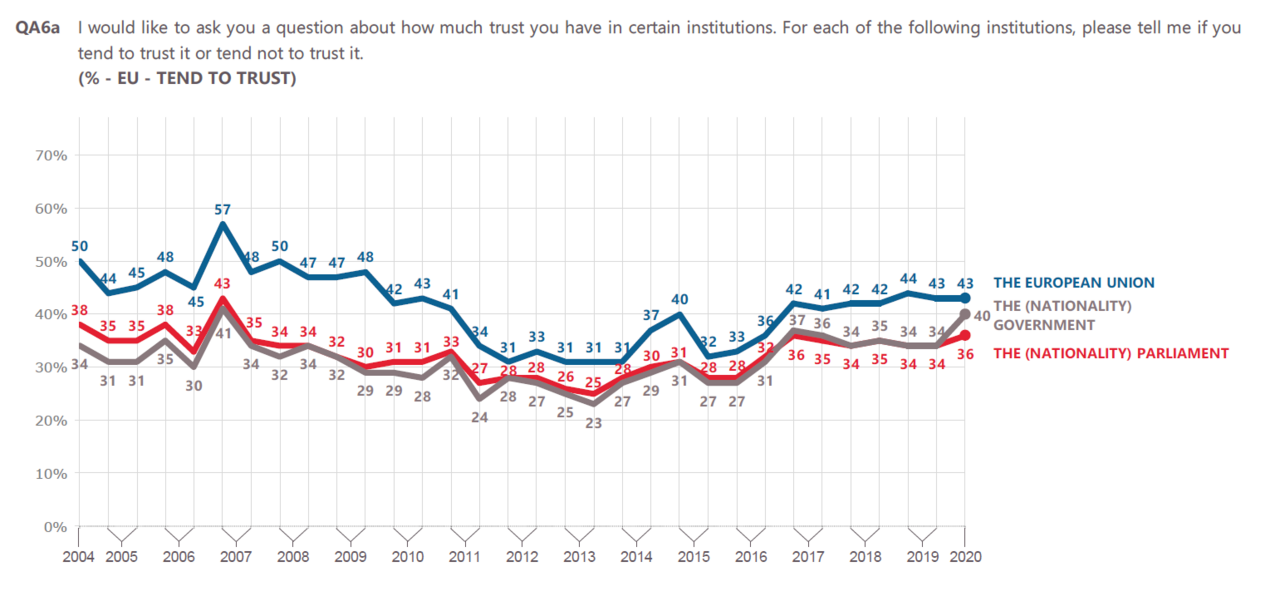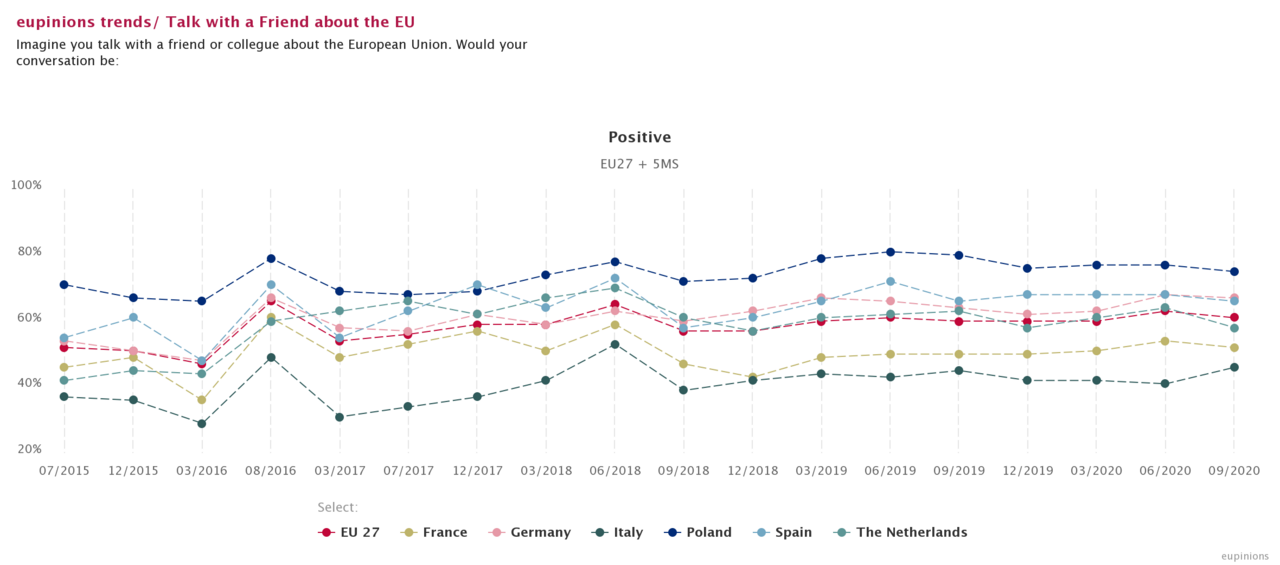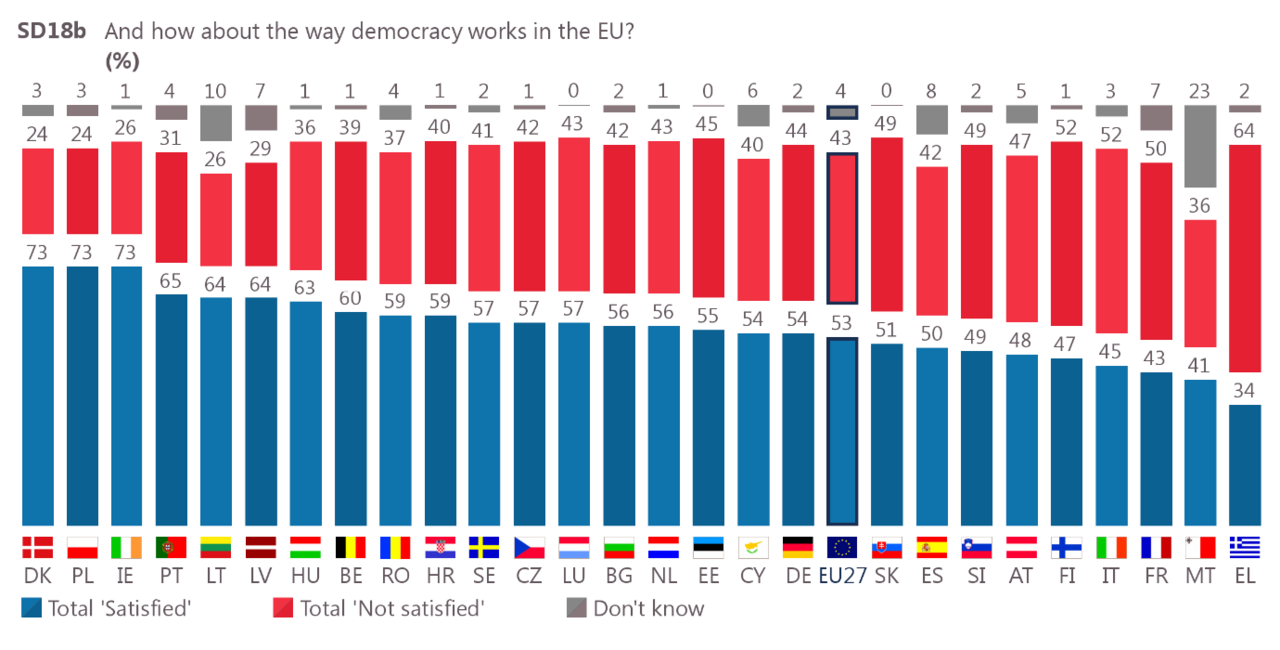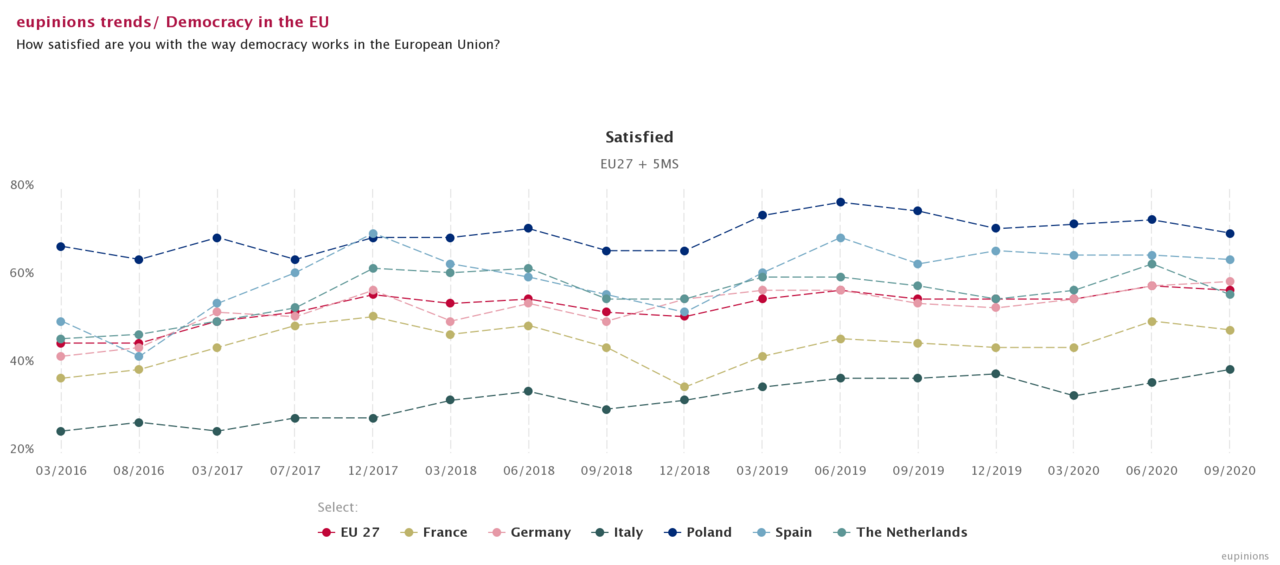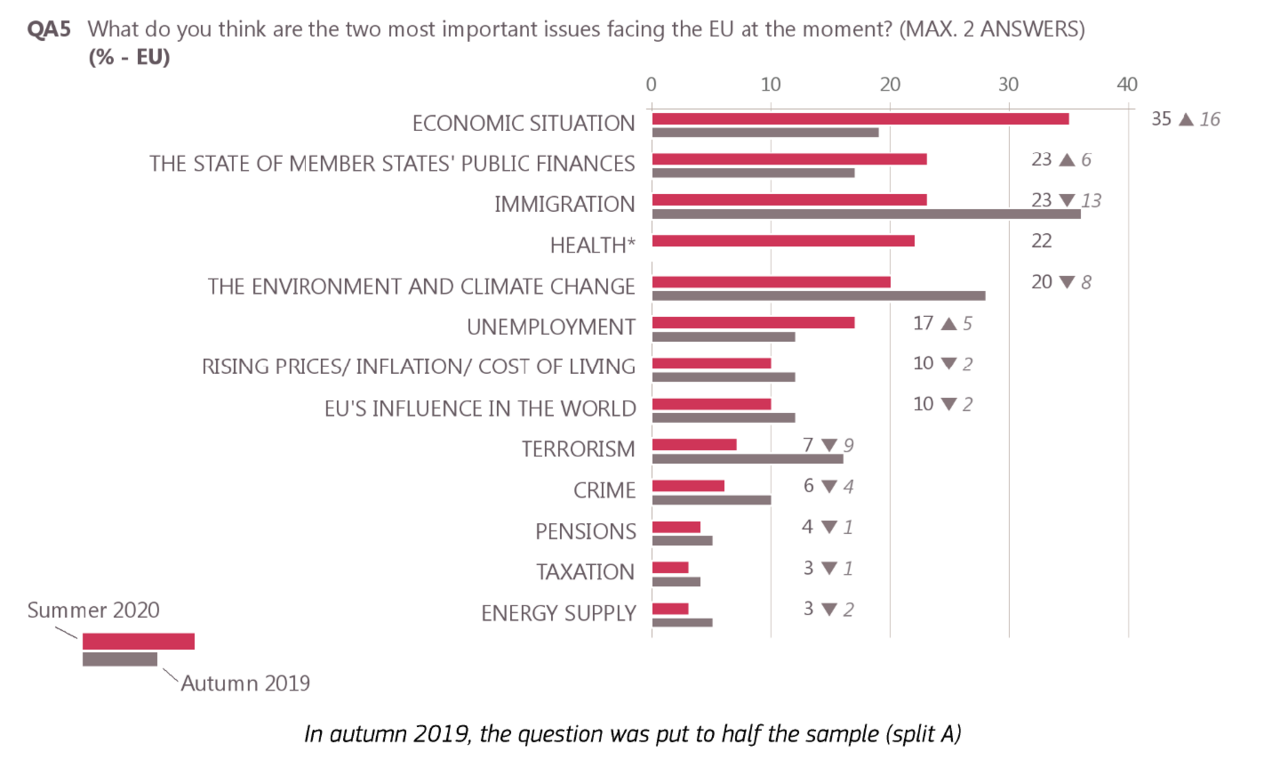Every week, surveys from all across the EU tell us what Europeans are thinking, feeling and talking about. In our segment, eupinions echo, we collect these voices and play them back to you. Each week, we highlight one survey of particular interest in a short blogpost and share daily new survey results via our website and our twitter channel.
Ever since its inception in 1974, the Eurobarometer has been the primary tool for European institutions like the EU Commission to gauge the various sentiments of European citizens. With a Standard Eurobarometer usually being published twice a year, the reports provide valuable insights into the general European mindset and shed light on how Europeans feel about the specific issues and challenges of today.
Due to the highly irregular nature of 2020, the end of October actually marked the release of the first Standard Eurobarometer this year. In this piece, we want to take the time to go over the results of this report in detail and compare them with our own data. As the report covers a large span of topics in great detail, this piece will be split into two parts. In today's blogpost we will examine the report’s findings on Europeans and political institutions, democracy in the EU, European citizenship, as well as the main concerns Europeans currently have. In next week's blogpost we will complete our analysis by going into the report's data on European key policy areas, the current European economic situation, Europeans' outlook into the future of the EU and finally, the impact of the COVID-19 pandemic on the EU and its citizens.
Europeans show little trust in the European Union but still generally view the EU in a positive light
To evaluate the relationship European citizens have with European political institutions, the Eurobarometer asked about their trust in the European Union and national governments, as well as how they view the EU in general.
While there are 15 EU member states, in which more people trusted the EU than mistrusted it, overall, there were still only 43% of EU citizens who reported trust in the European Union as an institution while 48% said they tended not to trust the EU. Trust in the EU was highest in Ireland at 73% and lowest in Italy at 28%. Interestingly, while trust in the EU has remained more or less unchanged since autumn 2019, trust in national governments has jumped from 34% to 40% in the same time across the EU. This can almost certainly be attributed to the 2020 coronavirus crisis which has seen many people rally behind their local governments in their attempt to fight the pandemic. This also confirms previous findings we reported on that EU citizens are not especially impressed by the EU's crisis management throughout the pandemic.



